Friends and wine experts have remembered revered Adelaide Hills winemaker Taras Ochota, praising him as the man who “changed the way we drink”.
Taras Ochota wasn’t an actual rock star – his nineties punk band Kranktus were far too abrasive to ever bother the charts – but he certainly had the air of one.
Handsomely dishevelled, the 49-year-old Basket Range winemaker had a magnetism that’s not often found, and that rare ability to relate equally to tradies and bartenders and the CEOs and showbiz stars that sought him out for both his renowned drops and his stellar company.
He just wanted to, as he once quipped to wine writer and good mate Nick Ryan, “make good piss and have a nice life”. Friends and acquaintances alike agree that he succeeded spectacularly on both fronts.
Ochota Barrels, his groundbreaking wine label, was a play on words.
Barrels for wine, of course, but also barrels in the surfing sense – that hollow place between the face of the wave and its pitching lip.
They’re rare and fleeting, but surfers dedicate entire lifetimes to finding them and it’s a philosophy that Ochota carried over into his winemaking. Good things, special things, are worth pursuing with everything you have.
Ochota’s minimal intervention wines – where he strove to let the grapes tell their story – gained him fans around the world and helped push the wine-buying public beyond the big, fruity reds South Australia is famous for. That legion of fans included some of the biggest names in rock.
Maynard Keenan, frontman of revered prog-metal band Tool, collaborated with Ochota to create the widely praised A Sense of Compression grenache.
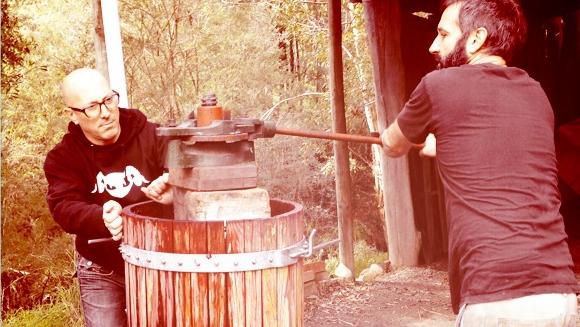
And in 2014 when the the most famous rock band in the world, The Rolling Stones, were in town for a sold out show there was only one place to go – the ramshackle shed that Ochota rather generously called his cellar door.
Ochota was actually expecting some members of the Stones’ production crew, so you can imagine the rock fan’s surprise when Sir Mick Jagger himself, along with Keith Richards’ wife Patti Hansen and Charlie Watts’s granddaughter Charlotte, emerged from the blacked-out Audis that had found their way down the long dirt driveway.
“After lunch Mick went and lay on his back on the grass and (son) Sage started crawling all over him,” Ochota said at the time.
“Sage then took Mick by the hand and led him to the sandpit where they played tractors.”
That particular night turned into a jam session around the home’s old piano that went into the wee hours of the morning.
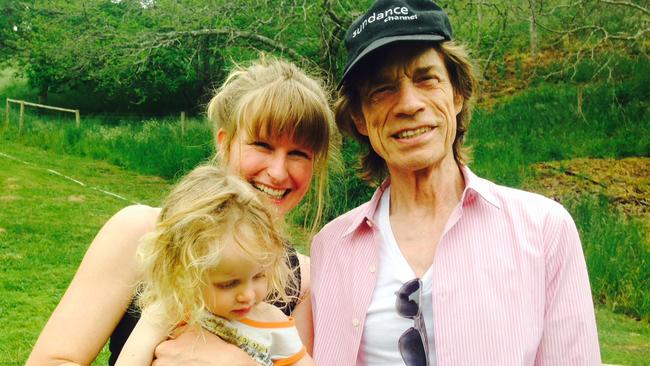
Ochota also helped transform the tiny Hills town of Uraidla into a food and wine destination, converting an old church into the Lost in a Forest pizzeria with mate Charlie Lawrence and pumping out pizzas that renowned British chef Marco Pierre White called “the best pizza I’ve had in my life”.
They’re big names, especially for someone obsessed with wine, food and music, and probably names that the knockabout descendant of Ukrainian immigrants would have thought he’d ever be rubbing shoulders with.
You wouldn’t have known, though, because whether you were Sir Mick Jagger or a bloke in front bar you got the same amount of Ochota’s attention.
After working in California – with frequent surf trips to Mexico to chase those elusive barrels – Ochota returned to his home state to study oenology and viticulture.
Then, after a stint making wine on a grand scale in Italy for export to Scandanavia, Ochota decided to take a massive risk by turning his back on big wine and moving to the Adelaide Hills with the love of his life, Amber, to make something closer to the drops he adored - young, fresh, early-picked and exciting.
It worked, and Ochota Barrels was soon the name on the lips of every wine writer, critic, bar owner and winelover in the country.
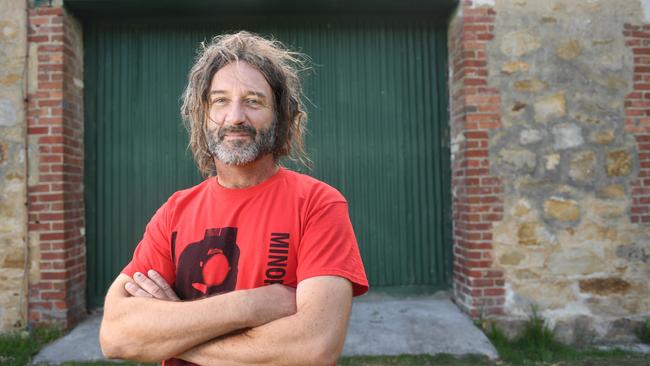
Ochota and Adelaide chef Duncan Welgemoedfirst met in 2011 and instantly hit it off.
“Taras, like his wines, was full of vibrancy and energy,” the Africola chef says.
“He was a best friend and mentor, the most generous of heart and spirit and his legacy will live on around the world because his impact on wine and community was immeasurable. The lights of the world just got a little dimmer without him.
“I did vintage with him the last couple of years because he was not well, with Louis and Amber and his dad Yari, I cooked lunch most days and after we would get drunk. His family was my family and he was as much a part of the Africola team as anyone here.”
It’s a sentiment seconded by Hellbound wine bar owner Mark “Reggie” Reginato, who has worked alongside Ochota in different capacities for more than a decade.
“It never felt like work when Taras was involved though,” Reginato says.
“He did things in his own style. He’d do anything for anyone, and everyone would do anything for him.”
Reginato says it’s not a stretch to say Ochota helped to change the way we drink Australian wine.
“He looked at bringing out the prettiness and ‘nervous tension’ in a wine,” he says.
“That was one of his favourite terms – nervous tension. He made things zippy and elegant and fresh, and you drank it when it was ready not because he’d thrown oak at it. Expressive, really expressive.”
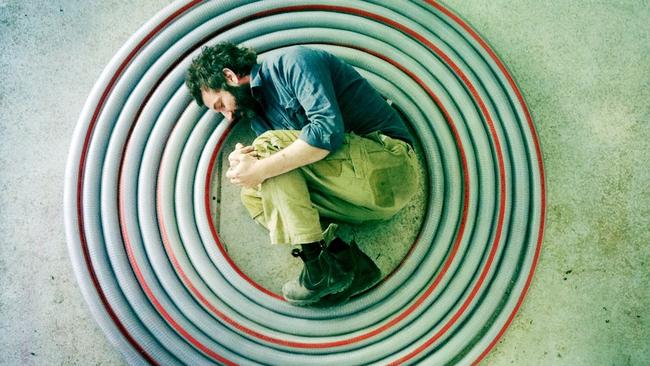
Wine writer and Sunday Mail columnist Nick Ryan says he can’t remember a response to the death of an industry figure that could compare.
“It’s a shared sadness felt right around the wine world,” Ryan says.
“It just reinforces the impact Taras had. He changed the way the world thought about Australian wine. He mapped a route to new possibilities and perspectives.”
Ryan says Ochota’s “daring, beautiful” wines shifted paradigms.
“He made it look effortless because he worked so hard. He embraced the art but never neglected the science. He would always say, ‘I just want to make good piss and have a nice life’. He overdelivered. He made great piss and lived a significant life.”
Triple M network head Mike Fitzpatrick, who once hosted a national content heads meeting at Ochota Barrels, says Ochota had a unique way of cutting through the pomp and ceremony that often accompanied wine.
“I mean he had a cellar door, but it was a cellar door in inverted commas,” Fitzpatrick laughs.
“A couple of rickety chairs and a table and old barbecue that must have been used a thousand times, and you’re thinking ‘he hosted the Rolling Stones here!’.
“In the end, he was a true artist. Just like a painter has access to the same colours that you and I have access to but can arrange them in a way that we never could, that’s what Taras was able to do with wine.”
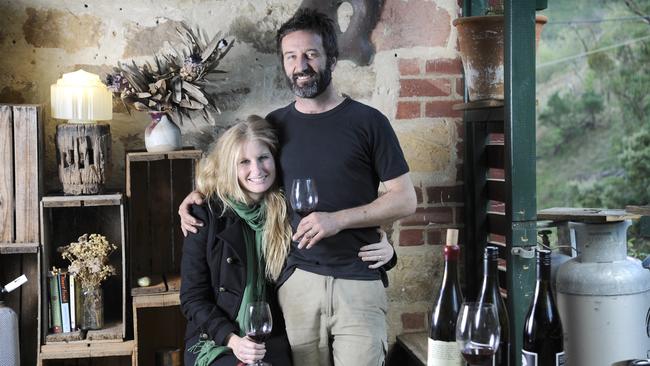
Wine writer and critic Nick Stock first met Ochota as a 10-year-old when they played ice hockey together.
“We became friends as kids, but of course 10-year-old Taras wasn’t the full Taras, but I remember his dad Yari, who was the most cool, gentle kind of dad and that was something that Taras eventually became himself,” Stock says.
“He became this very cool, gentle, mischievous, delightful, strange genius of a man.”
Stock seconded Reginato’s claim that Ochota changed the face of Australian wine.
“It’s because he just saw beauty and he made wines with a very light touch, in an ethereal way, at a time when the mainstream world of Australian wine was coming out of the back of big, rich, ripe, heavy, slightly overdone styles of wine.
“Taras had certainly made many of those wines for other people, and he saw the opportunity to make wines that were almost complete opposite of that. It was really the elegance, delicacy and the purity of the wines that he made that completely changed the world’s ideas of what Australian wines could be.”
For Nathan Sasi, who moved to Adelaide to open Leigh Street Wine Room last year, Ochota was one of the first winemakers to reach out and make friends.
“He really made us feel part of the community when we arrived here and it was a bucket list goal to do a collab together,” Sasi says.
“That came true this year and made even more special because Taras drew the label himself – a cute little washing machine that was a homage to the dry cleaners sign we still have hanging outside LSWR, plus our joint love of Sonic Youth.”
Ochota died after a long battle with an auto-immune condition, and leaves behind wife Amber, son Sage and daughter Anouk.
The Ochota Barrels story, however, looks set to continue with Adelaide Hills Wine Region president Hamish Laurie saying Ochota’s legacy would live on.
“Taras pioneered a new style of wine and winemaking which many have already followed,” Laurie says.
“Plans have also been put in place for Ochota Barrels – the wines to continue to be made which I think is a great tribute to him.”
A MINIMALIST WINEMAKER WHO HAD MAXIMUM IMPACT
In November 2019, a group of wine scribes, friends and long-time fans of the brand gathered at CBD bar Hellbound for the ‘Ochota Barrels: The Fugazi Vineyard Vertical Dinner’. It was a fitting location for a night dedicated to a bloke often referred to as a rock star of the winemaker variety.
All 12 Ochota Barrels Fugazi Vineyard Grenache vintages were served in a line-up that will never happen again. Taras had to search hard to locate the full spread (named after American punk band Fugazi).
“I haven’t even tasted them all side-by-side like this before,” he said ahead of the shindig. “I thought it would be good to share it when I did.”
When wine scribes Mike Bennie, Nick Stock and Nick Ryan stood up during the dinner to share anecdotes, their respect for the pair and their creations permeated their colourful yarns.
The adoration is merited. Taras and Amber paved the way for Australia’s minimal intervention wine movement and played a pivotal role in putting a spotlight on the Basket Range, the Adelaide Hills and the state as a whole. In a nutshell, he made delicious wine using top quality organic fruit – minus the “nasties”.
He did it his way, following age-old winemaking traditions with scientific know-how.
“We don’t put in any chemicals or anything that manipulates… just grapes,” he told wine writer Katie Spain in 2019. He wasn’t averse to adding a little bit of sulphur to keep things in check. “But we keep it as low-fi as possible.”
The small batch magic happened at his small, impeccably clean Adelaide Hills winery (a low-tech affair just a stone’s throw from his home). There, his father helped out, so too did young winemaker Louis Schofield.
Taras made wine without the wank or pompous bravado with which it is sometimes consumed and promoted. That just wasn’t his way.
He rode a fine line between natural and conventional worlds and bridged the gap between them. The world took notice.
He made snappy wines. Wines that chefs and sommeliers loved. “We need to make wines that don’t dominate but let their food sit up, lift it, and get people to get out and neck a bottle.”
Wines that reminded him of what he’d encountered and learnt in Europe and in his words, went “bang.”
Think grenache made with fruit from organic 1946 vines; whole bunch, wild ferment, picked early. “I love wines that have that nervous tension and make you hungry. Succulent… like picking a satsuma plum a few days too early.”
He played with techniques such as extended maceration and put light reds in clear glass bottles. “Just to show that there’s nothing to hide... Just simple, gorgeous red wine. A lot of people have said things like, ‘this fruit has been hanging around since 1946… they’re dry grown, gorgeous bush fires, why wouldn’t you make something a bit more intense and more premium?’”
His fresh approach inspired winemakers the world over.
The wines were as exciting as they were exquisite and Ochota Barrels earned a loyal following around the globe… but what makes an industry leader and wine hero isn’t always about what’s in the glass. It’s his all-inclusive attitude, approachability,generosity of spirit and willingness to share knowledge for which Taras was so loved.
He attracted people – good people - like a magnet, connected them, and lifted their spirits, both via the glass and quite simply, his presence.
- Katie Spain , wine writer


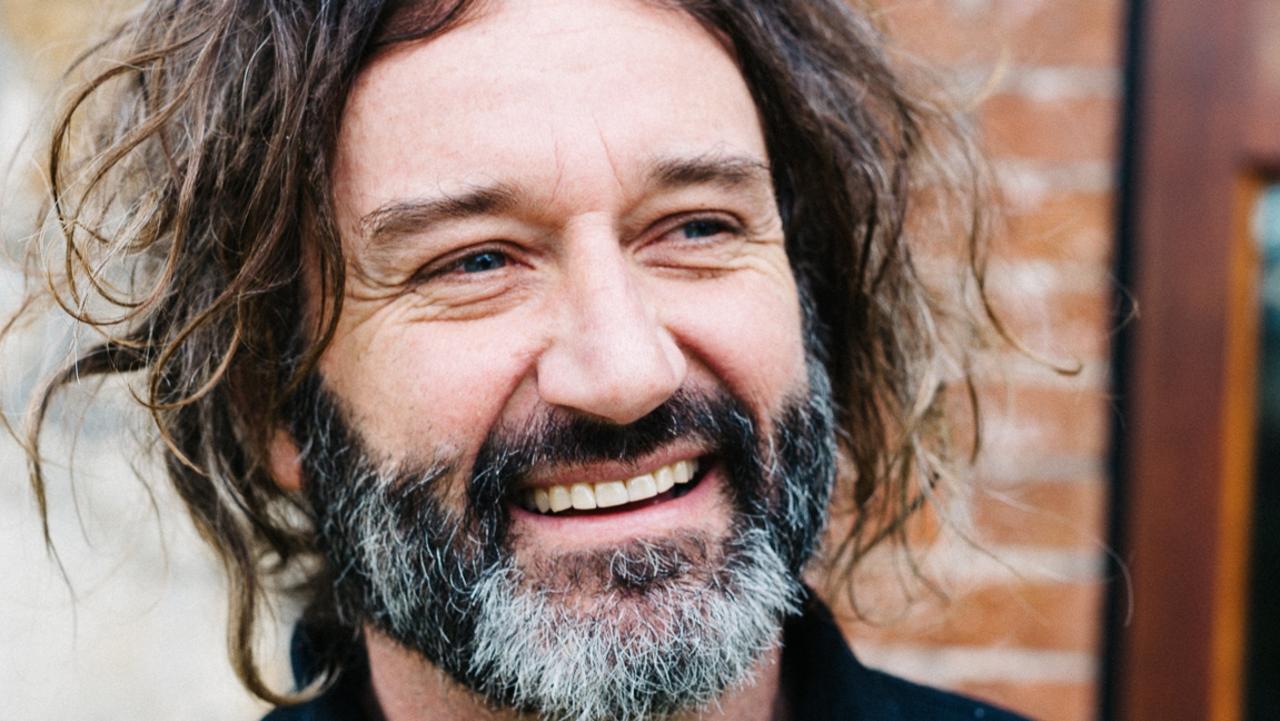
Add your comment to this story
To join the conversation, please log in. Don't have an account? Register
Join the conversation, you are commenting as Logout